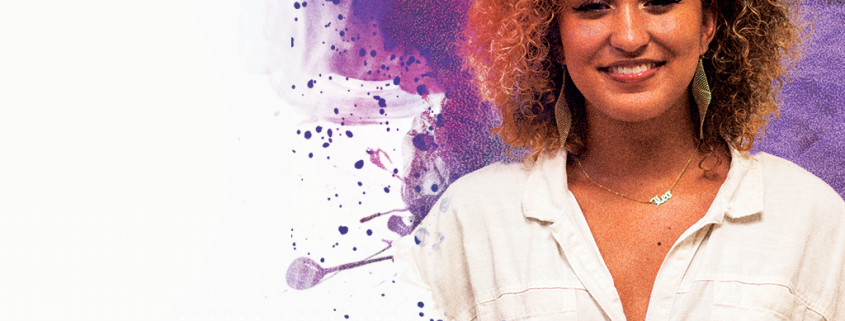Food for the Soul: The American Dream is unfit for this generation of youth
Growing up in the suburban Midwest, specifically Kansas City, Mo., the idea of Americanism has been deeply ingrained in Midwesterners as a means of patriotic living. This idea, in a traditional sense, is deeply rooted in the American Dream, a concept which entails beginning a pattern of generational wealth based on the acquisition of farmland, later defined as simply a means of working hard for your success.
In the Midwest, where fewer job opportunities are found yet exploration is discouraged, Midwest emo in the ‘90s sprouted as an art movement to counteract this standard by displaying teenage emotion. A subgenre of emo, this genre was created to put emphasis on the emotional aspects of a Midwestern teen’s life, including the downsides of suburban living, romance and friendships, aspects less accounted for in the pressure to attain the American Dream.
However, throughout history, this ideal has almost exclusively considered the standard person that it fits, a one-dimensional identity: a cisgender, heterosexual white person. In our revolutionized society where queerness and identity is further explored than ever before, this ideal does not work with its original demographics,and is, in fact, being mended as we speak.
After speaking with my classmate Rishi Malay, who I discovered was a Kansas City native like myself, I was also able to talk with his band, Midwest Telegram. Based out of Kansas City, this band collectively reflects queer and communities of color while, simultaneously, being a Midwest emo band, a traditionally American concept. In their existence through this band, they redefine what it means to be an American in a perspective that our modern world deserves.
Collaborating as a group of high school friends, the Midwest Telegram released its first self-titled EP September 2021. Lyrics such as “I’m suffering from the American Spirit Blues / Looking for salvation in my church pew” from the track “American Spirit Blues” and “I want a cure for my suburban misery / Want to be a part of this new century” from “Suburban Misery” give insight into the unrealistic expectations placed upon Midwestern teenagers as part of the Midwest’s majorly conservative demographic.
The band details that, given this artistic avenue, they are able to better understand the meaning of Americanism in their identities that challenge the ideal. The American Dream is supposed to be an attainable goal according to the Declaration of Independence, which claims all are created equal and have the right to the pursuit of happiness.
Despite the intentions of fairness displayed in the Declaration of Independence, the American Dream is not realistically attainable for all. As the American Dream begins in the workplace, it’s important to examine the challenges that both people in the LGBTQ+ community and people of color face in these environments.
The Catalyst’s Lesbian, Gay, Bisexual and Transgender Workplace Issues shows that 32% of individuals of color on the LGBTQ+ spectrum have experienced workplace discrimination, while 13% of these individuals who are white have received this treatment. Even more impactful in terms of the American Dream, 22% of LGBTQ+ individuals have reported to receive less promotions and/or pay than their cisgender and heterosexual counterparts. As workplace challenges persist for those of the queer spectrum, it is clear that the American Dream falls short in including all individuals.
Likewise, people of color — who identifiy as queer or non-queer — face obstacles which make this ideal fall short of perfect. According to the National Bureau of Economic Research, non-Western names face job acceptance difficulties within the United States market. Another challenge prominent in communities of color in the U.S job market is implicit bias, which bleeds into applicant selection.
With these challenges present for the LGBTQ+ community and communities of color in the U.S., the exploration of the American identity is much more difficult for teenagers to fulfill.
Meghana Lakkireddy, a member of Midwest Telegram, said that while the aspect of starting a band is traditionally very American, their personal heritage and their queerness as a group exemplifies a unique American experience. For Lakkireddy, the multidimensional members of Midwest Telegram subverts the American identity in a beautiful way.
“I feel like the way that we’re doing it is like, through the lens of like [Lakkiereddy’s] immigrant parents and her grandma, who doesn’t know English, and is [still] greeting everybody when they come in,” Lakkireddy said. “That, in addition to the ties that we have to each other because we’re queer — those subtleties and how we experience things like band practice or the songwriting process makes us very unique.”
For the new American individual in the 21st century, the American identity is explored through the lens of a proud sense of individuality, rather than conforming to the American Dream’s standards. Using the genre of Midwest emo as a way to combat the pressure behind limiting oneself to achieve their dreams in the patriotic way, this band is representative of the new wave of intersectional teens which challenge the typical norms of suburbia.
Another member of the Midwest Telegram, Willow Maclvor, said the Kansas City she experienced while being a closeted trans girl for the majority of high school was less gratifying; however, after coming out, she is now able to better enjoy Kansas City. By defying the cisgender standard that Midwestern suburbia places on youth, Maclvor found a sense of belonging.
As our society becomes socially welcoming to individuals of color and the LGBTQ+ community, not only does the idea of the American Dream in its origins become unfit for our world but also through the existence of youth who proudly express their identities such as the Midwest Telegram, Americanism is being redefined.
Soulenne Githumbi is a freshman writing about the endeavours of everyday arts students. Her column, “Food for the Soul,” runs every other Thursday.

